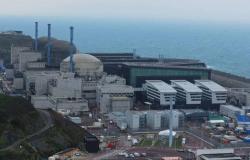Yesterday evening after the European elections, Emmanuel Macron dissolved the National Assembly, putting an end to the current legislature. The Senate cannot be dissolved and therefore retains its mandate. What will happen now for the Upper House?
What are the rules?
It is article 12 of the Constitution which allows the President to dissolve the National Assembly. The Senate cannot be dissolved. In a communication this Monday morning, the Senate recalls that senators retain their mandate and ensure the permanence of national representation during the campaign period and legislative elections. As such, it can sit at any time, in particular to hear the government. “Republican custom dictates that the Senate ceases to sit, from the dissolution until the installation of the new National Assembly,” we can read on the website of the Upper House.
In April 1997, during the last dissolution of the National Assembly, the Senate suspended the examination of the texts until the end of the legislative elections, while continuing the work in committee. On April 22, 1997, the day after the dissolution, the session was opened with a declaration from the president at the time, René Monory: “Following the dissolution of the National Assembly, the conference of presidents which has just been held meeting wanted to recall that the Senate constitutionally ensures the permanence of national representation. The Senate is therefore able to meet at any time during this period of dissolution. However, immediately, such a meeting did not seem necessary. Moreover, it should be remembered that, previously, in similar situations, the Senate had ceased to sit until the installation of the new National Assembly. It goes without saying that, if circumstances required it, the Senate would be convened without delay. The Government has made a commitment to come before the High Assembly in such circumstances. The Senate will therefore adjourn, leaving it to its president to summon it.” The session was then suspended, only to resume after the legislative elections.
A conference of presidents at 4:30 p.m.
In this case, a conference of presidents, the Senate body which sets the agenda, is scheduled for this afternoon at 4:30 p.m. to decide on the course of action to follow. What is looming is a suspension of work in session: no examination of legislative proposals or draft laws. At the Assembly, it is the end-of-life project that falls through. In the Senate, it is the bill to simplify economic life whose future is compromised. The agriculture and housing bills, which were due to reach the Senate in June, are also on hold.
However, the work of the Palais du Luxembourg committee (commissions of inquiry, fact-finding missions, hearings) would be maintained. Several reports are expected in the coming days in the Senate: that of the commission of inquiry of the environmental group on TotalEnergies, that of the finance committee on the deterioration of public finances, or that of the socialist group on foreign interference.
This afternoon, after the conference of presidents, the session will be opened at 5:15 p.m. for the president to announce, as in 1997, the operation decided by the Senate.






